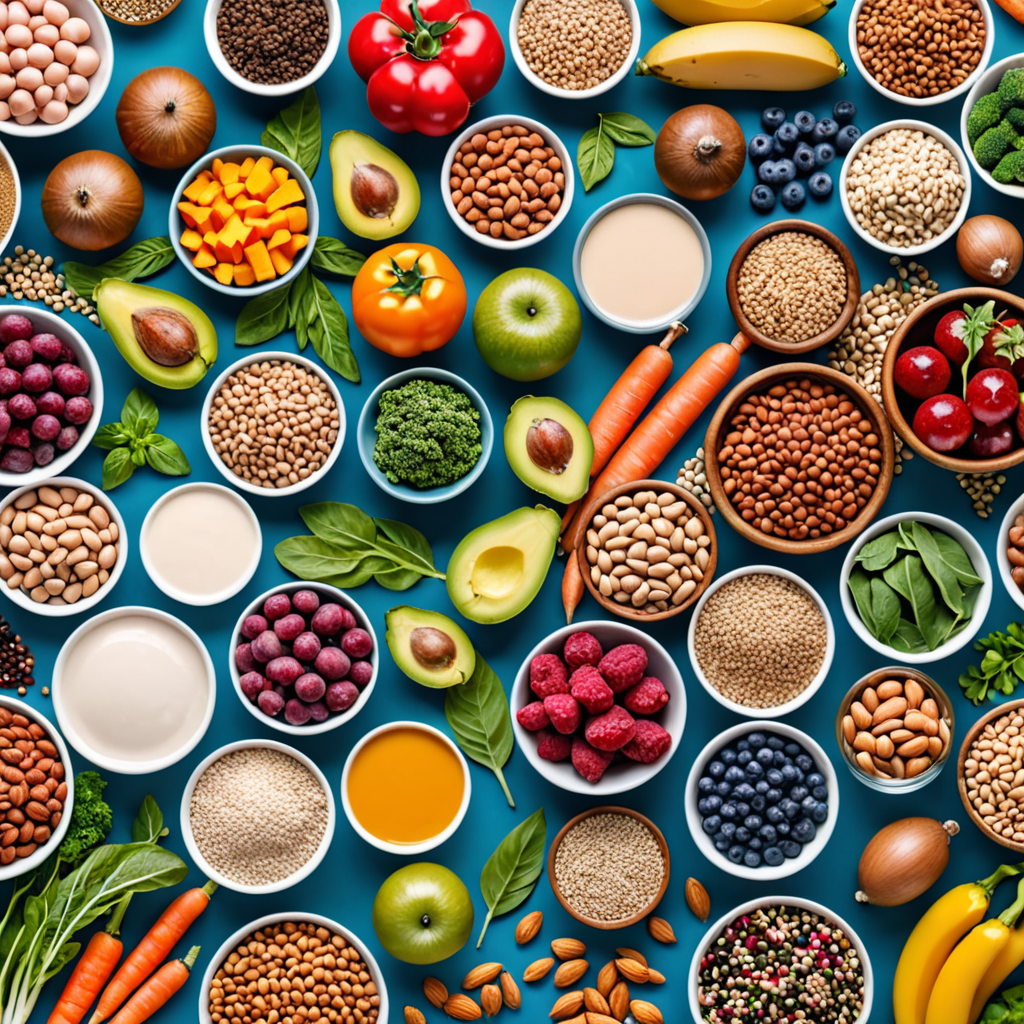
Plant-Based Protein Sources for Vegetarians and Vegans
The Importance of Plant-Based Proteins
For individuals following a vegetarian or vegan diet, it’s crucial to find adequate sources of protein to support overall health and well-being. Plant-based proteins are essential for muscle growth, repair, and various bodily functions. These proteins are also typically lower in saturated fats and cholesterol, making them a heart-healthy choice.
Top Plant-Based Protein Sources
1. Legumes: Beans, lentils, and chickpeas are excellent sources of protein, fiber, and essential nutrients.
2. Quinoa: A complete protein, quinoa is packed with all the essential amino acids the body needs.
3. Tofu and Tempeh: These soy-based products are versatile and provide a significant amount of protein.
4. Nuts and Seeds: Almonds, chia seeds, and pumpkin seeds are rich in protein, healthy fats, and micronutrients.
5. Edamame: These young soybeans can be enjoyed as a snack or added to salads for a protein boost.
Incorporating Plant-Based Proteins into Your Diet
It’s essential to include a variety of plant-based proteins in your meals to ensure you’re getting all the essential amino acids. This can be achieved by preparing dishes such as lentil soup, chickpea curry, or a quinoa salad. Smoothies with added chia or hemp seeds can also be a delicious way to boost protein intake.
Benefits of Plant-Based Proteins
Plant-based proteins offer numerous health benefits, including improved heart health, better digestion due to their high fiber content, and the potential to aid in weight management. Additionally, they often contain phytonutrients and antioxidants, contributing to overall wellness.
Meeting Protein Needs on a Plant-Based Diet
It’s important for vegetarians and vegans to be mindful of their protein intake and ensure they’re meeting their daily requirements. Understanding portion sizes and incorporating a balanced mix of protein-rich foods throughout the day is key to maintaining optimal nutrition.
Conclusion
Plant-based proteins are not only beneficial for individuals following a vegetarian or vegan lifestyle but can also be a valuable addition to any diet. By understanding the variety of sources available and how to incorporate them into meals, it’s possible to enjoy a protein-rich, satisfying, and nutritionally balanced diet.
Frequently Asked Questions about Plant-Based Protein Sources for Vegetarians and Vegans
What are some common plant-based protein sources for vegetarians and vegans?
Common plant-based protein sources for vegetarians and vegans include legumes (such as lentils, chickpeas, and black beans), tofu, tempeh, edamame, quinoa, chia seeds, hemp seeds, nuts (such as almonds, peanuts, and cashews), and seeds (like sunflower seeds and pumpkin seeds).
How can vegetarians and vegans ensure they are getting enough protein in their diets?
Vegetarians and vegans can ensure they are getting enough protein in their diets by including a variety of plant-based protein sources in their meals, such as beans, lentils, tofu, and quinoa. They can also consider incorporating protein-rich snacks like nuts and seeds into their daily intake and using protein-rich plant-based protein powders.
Are plant-based protein sources enough to meet the protein needs of vegetarians and vegans?
Yes, plant-based protein sources can provide more than enough protein to meet the dietary needs of vegetarians and vegans. By consuming a diverse range of plant-based protein sources and incorporating them into well-balanced meals, individuals can easily meet their protein requirements without needing to rely on animal-based protein sources.


